Our Frightening World
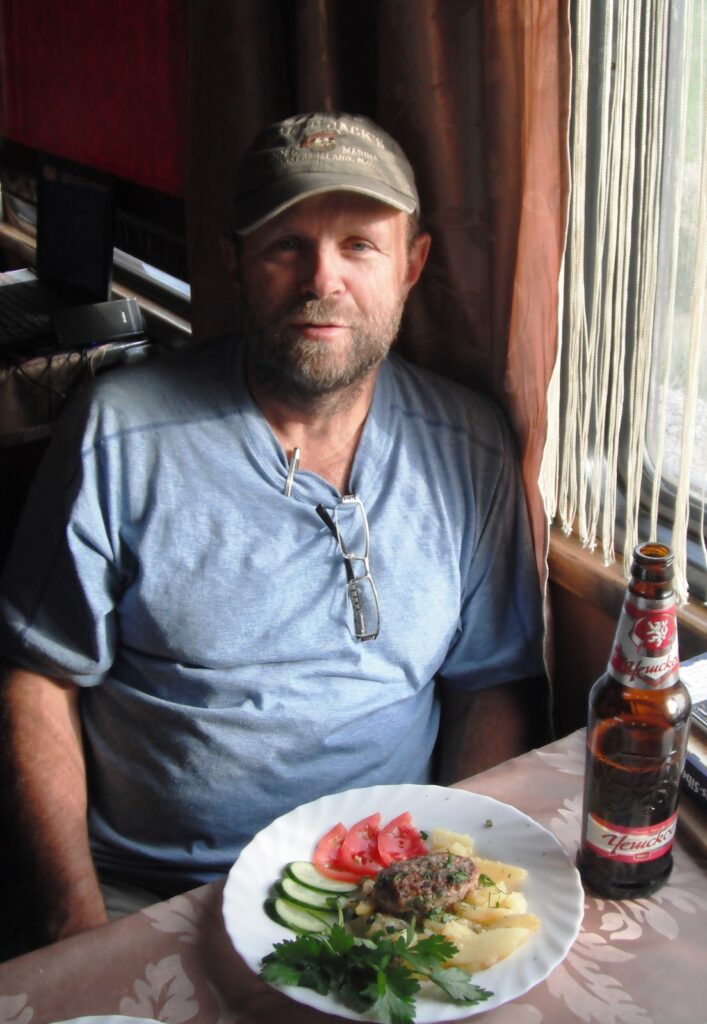
We’re living in a scary time with what is going on in Ukraine and Putin’s disregard for the rule of law as he orders Russia to invade a sovereign nation. In 2011, I took the Trans-Mongolian railroad from Beijing to Moscow and then an elegant overnight train on to St. Petersburg. It was a wonderful trip and a few years later I read Colin Turbon’s book (which I’m reviewing below). The photos in his post came from that trip. I found the Russian people to be warm and welcoming. But sadly, the country has a long history of corrupt leadership (from the Czars to the Soviets, and now with Putin). While it would be wonderful for Putin’s army to be humiliated in his Ukrainian operation and order restored, we must remember that those who will suffer are the Ukrainian people and the Russian soldiers, many who are conscripted into the military.
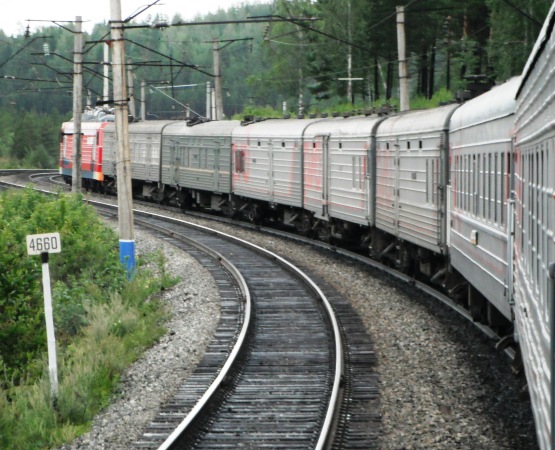
When I was in college, I took a class focusing on Russian history. Sadly, most of those books I read focused on the attempts to modernize (or westernize) the country by Peter the Great, the 1917 Revolution, and Stalin. I should attempt to update my knowledge. I found a wonderful Twitter trend by an London bookseller (who is from Eastern Europe) on books to learn more about both Ukraine and Russia. Click here to read through the thread. Who would like to join me in learning more?
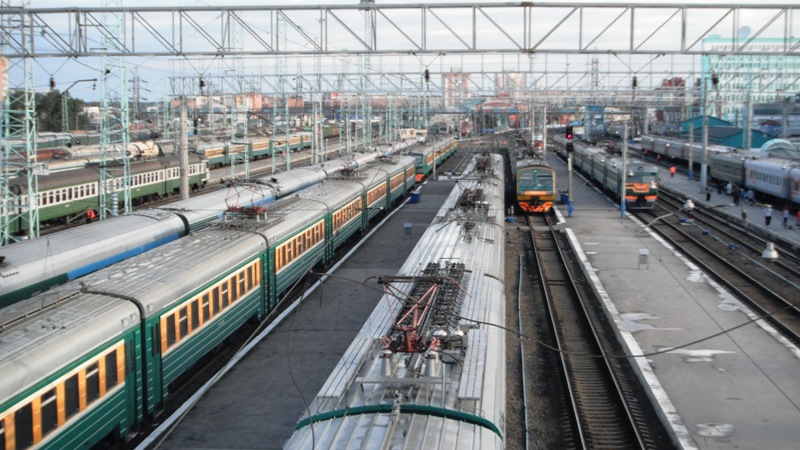
Colin Thuborn, In Siberia
(1999, HarperCollins ebook, 2009), 270 pages
During the Soviet era, much of Siberia was closed off from the West. The Soviets utilized this vast area (which contains nearly a fifth of the world’s landmass) as the Czars had earlier. Siberia existed as place of exile of criminals and political prisoners. During the Second World War, industry began to develop in Siberia. The remote lands were far from the reach of Hitler’s tanks. The land is blessed with resources including minerals, oil, timber, wheat and cursed with hardship. The coldest temperatures ever recorded in inhabited place was in Siberia. After the breakup of the Soviet Union and two years after the end of collective farming, Colin Thubron set out to explore this region. Thubron, an Englishman, was familiar with Russia, having spent time there during the Cold War and having written on the nation. In his travels, he takes the Trans-Siberian Railroad as well as the BAM (Baikal-Amur Railroad), a line that runs north of Lake Baikal, and a steamer up the Yenisei River to the arctic. In the East, he flies to remote locations. In all, he covers the region from the Urals to the Pacific, from the “Altai Republic” along the Mongolian border to Dudinka, beside the frozen waters of the Arctic.
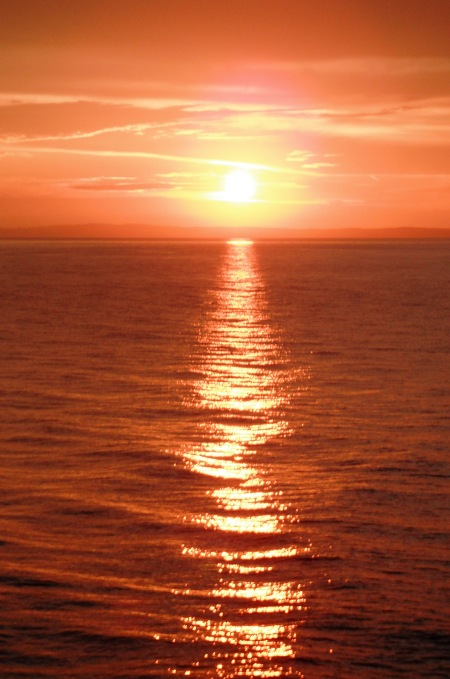
Siberia, Thubron writes was “born out of optimism and dissent.” (22) Starting in the 1750s, Siberia became a place to exile criminals (just as Britain exiled its criminals to Australia) and although the number of criminals outnumbered the political prisoners, the later served as a “leavening intelligentsia” for the region. (162) Ironically, Siberia with its vastness became a place of freedom. In the 18th Century, those who moved there had a saying, “God is high, and the czar is far off.” (22) In the aftermath of the Russian Revolution, Siberia was a stronghold out for the White Russians who fought against the Bolsheviks. Thubron tells of a discussion in Irkutsk to build a statue to honor Admiral Kolchak, a leader of the White Russians who was shot by the Bolsheviks at Irkutsk and his body pushed below the ice. He doubts the monument will be built. However, in 2011, when I travelled across Siberia, I enjoyed a a beer brewed in Irkutsk named for the Admiral. If you can a statue, a beer seems like a fitting tribute.
Traveling in the years after the breakup of the Soviet system and the end of state-sponsored atheism, Thubron was surprised to find religion so alive. “Russia’s atheist past seemed no more than an overcast day in the long Orthodox summer,” he noted. (56) As he traveled, he witnessed new and renovated churches opening. At the dedication of a monastery outside of Omsk, he asked himself, “Why had this faith resurrected out of nothing, as if a guillotined head had been struck back on its body? Some vital artery had preserved it.” (59) Not only does he explore the resurgence in the Orthodox faith, (who seemed to be profiting from the ability to import and sell alcohol and cigarettes tax free (56), but also Buddhism among the Buryat (165ff), a dying Jewish settlement in Eastern Siberia (208ff), Russian Baptist (220f), Old Believers with their insistence of the correct way to cross themselves in prayers (175f), and even a few who were trying to revive traditional shamanistic practices (98ff). In each situation, he meets with religious leaders. One of the more interesting interviews was with an Orthodox priest in Irkutsk, whose father had been a communist and whose mother was a Christian. He told about how in the Army, he began to be convicted of his sin and came to God through his guilt. This priest feared a war between China and Russia and felt that America was a godless land (156-7).
But not all of Siberia is teaming with religious revival. Many of the people Thuborn spoke with felt their world collapse along with communism. One woman, sent to Siberia by Stalin,still refused to criticize the Communist Party. Toward the end of his journey, in northeastern Siberia, he visits Kolyma, the location of some of the deadliest camps. Being sent here was a death sentence. In the winter of 1932, whole camps (prisoners, dogs, and guards) froze to death. It is here that the coldest inhabit place on earth is at, where the temperature has dropped to -97.8 F, where one’s breath will free into crystals and twinkle onto the ground, a phenomenon known as the “whispering of the stars.” (254) Yet, despite such harsh conditions, they produced nearly a third of the world’s gold in the 1930s. It is estimated that one life was lost for every kilogram of gold produced. Over 2 million people died here. (251f) The condition of the camps horrified Thubron, who seems concern that the residents of Siberia accept the camps of the past without much thought.
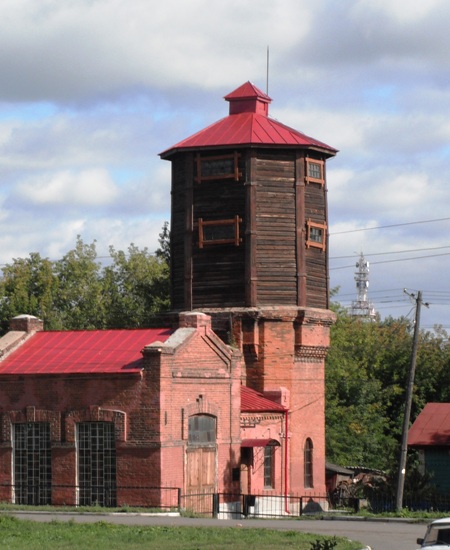
In his last collection of Stalin horror stories, Thuborn tells of the prison ship, the SS Dzhurma. This ship, according to Thubron, became lodged in ice in 1933 with 12000 prisoners on board. All the prisoners froze to death and half the guards went crazy, according to Thubron. This would also be the deadliest maritime disaster ever, in terms of life lost. When I read this, I thought it sounded like fodder for a horror story and I did some checking. From a couple sources on the internet, found that there are some questions of the validity of this tragedy. Two things don’t fit according to these sources. First, the Soviets purchased the Dzhurma two years later, in 1935. Second, it was only a little over 400 feet long, making it nearly impossible to have had 12,000 prisoners onboard. However, in 1939, another “death-ship,” the SS Indigirka sank with its human cargo trapped below deck. (256)
I really enjoyed this book and wish I would have read it before traveling through Siberia. At that time, I read Ian Frazier’s excellent travelogue, Travels in Siberia. Thubron’s book is a little out of date, but it is also excellent. His writing is engaging and never boring as he weaves together a story about this vast and unknown landmass. I found reading this book on a e-reader both pleasant (it’s nice and light) and a little troublesome as I couldn’t easily flip back to the map at the beginning. Furthermore, the map didn’t show up well and found myself dragging out an atlas to locate places Thubron traveled. I recommend this book.
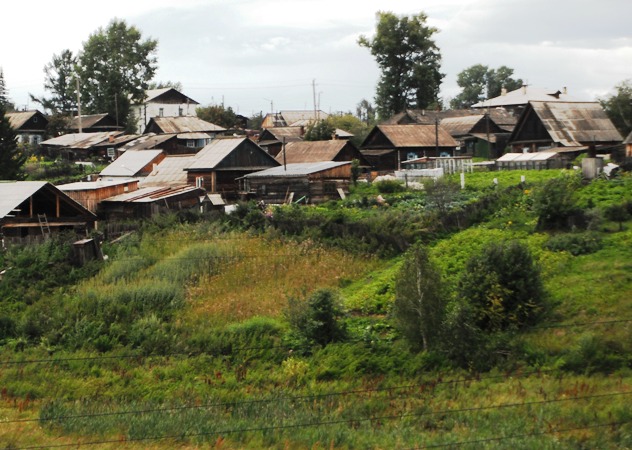

Oh! I’ve always wanted to take that train! Or the trans-Siberian railway. I was taking Russian language classes at work a while ago but haven’t had time to pursue that lately, unfortunately.
A Ukrainian Canadian artist whose work I love is Martha Markowsky: https://www.saatchiart.com/MarthaAnnMark
I too read Russian and Eastern history at university. I took it mostly to gain an understanding of the region that wasn’t profoundly coloured by the propaganda of the Cold War.
And while I’m not as surprised as most by the activities as western officialdom seems to be, I am by the sequencing and timing.
Before Russia took Crimea or any other place they moved on they prepared the ground both at home, in the place targetted and the international community generally. I was pretty certain they would try to annex the Ukraine piecemeal. First by absorbing the eastern two Oblasts, then in a few more years taking a few more.
Why I qualified the comment on Officialdom above is due to the sheer speed and depth of the reaction against the Russians. They seem to have them ready to go. But for all the reactions I think only secondary sanctions against China will have any traction at all.
Secondary sanctions on China would drive the Chinese closer to Russia.
Have you read Anne Applebaum’s “Red Famine” on the Ukrainian famine in the 1930s? I have just started it, but it is amazing and disturbing (and the same kind of language was used by Lenin and Stalin toward Ukraine after WW1 as Putin is using today.
No, when it came out I read some of the reviews. But I was trying to step back from political engagement. Some voted in a mindless tweeter back then.
This has a very good take on what’s going on things out of Yale from a few days ago https://youtu.be/xg0c6fd8PCk
Thanks for the link. The Yale conversation was informative.
I’ve always wanted to take that train trip. A friend and I were planning it when our lives became entangled by family issues, and by the time we were free to go, something else ( I can’t recall what) prevented us again.
I’m marking Thubron’s book down as one to read. I’m already well into Larson’s book Thunderstruck, and I think you recommended it. It’s brilliant, so thanks.
When I was on the train, I read Ian Frazier’s “Travels in Siberia” which I also enjoyed (and it’s a little newer than Thubron’s book.
Your Wintery picture at the top of the blog is beautiful.
Sounds like you had a fun train ride. It is really sad what is happening over there right now.
That was from our snow two weeks ago. The snow is now gone and it’s warming up.
The creek is about a mile and a half from where I live.
I spent a month in Russia, traveling, back in the 1980’s–Soviet Union. The people were fun and friendly. The culture was strong. I gained such respect for their culture.
I would agree with you. I find it interesting that they are a link between the east and west, they don’t want Ukraine to become more Western, but their own history going back to Peter the Great has been their attempts at becoming Western.
Sage
A number of years ago I visited Bulgaria, and the remnants of Russia’s occcupation were very efficient. My sons church is host to a Ukranian Church.
timm
Evident not efficeint
It would be interested in a dialogue with those in the Ukraine Church.
I’m always up for learning more! I have a entire bookshelf of books that I bought to learn more about something and just haven’t gotten to yet. As I find myself explaining Russian/Ukraine history to my wife and kids, I do wish I had some more recent knowledge.
I think I’m going to start with reading Anne Applebaum’s book on Ukraine and Stalin in the great famine in the 1930s
You’ve been to so many interesting places! My great grandparents were from Russia. If they hadn’t gotten out, they would have been killed because they were part of a minority group that wasn’t Russian enough for Stalin’s tastes.
Glad they got out of Russia. What year did they escape. I have been blessed to have traveled to some interesting places.
I bet that was a fantastic train trip!
Actually, the train trip started in Singapore… it was an incredible sabbatical